مصرف دارو در میان ورزشکاران
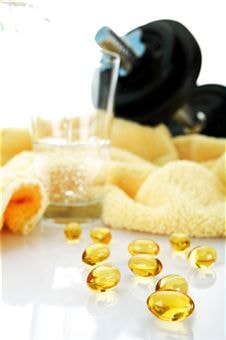
Drug Use Among Athletes
Drug use is a common problem in many sports competitions today. In both professional and amateur sports, many athletes use drugs that are designed to improve athletic performance. The use of these drugs may have harmful effects on the future health of athletes, but they also give an unfair advantage in athletic competitions.
Some of the most widely-used performance-enhancing drugs are called “anabolic steroids.” Anabolic steroids are drugs that are very similar to the male hormone, testosterone. These drugs allow athletes to develop larger and stronger muscles, and to increase the intensity of training. For sports that require strength, power, or speed, the use of steroids can provide advantages. In past years, many famous sprinters and weightlifters have been found to have used steroids.
However, anabolic steroids have many negative side effects. To give just a few examples, steroids can cause changes in mood, including irritability and anger, and can also cause skin problems such as acne. In men, steroid use can lead to reduction in the functioning of the testicles. In women, steroid use can interfere with menstruation. In both men and women, long-term side effects include an increased risk of some forms of cancer.
Another widely-used drug is known as EPO. EPO is a hormone that helps to produce red blood cells, which carry oxygen to the muscles. When taken by athletes who compete in sports that require great endurance, EPO may provide an advantage by allowing the athletes to maintain their speed for a longer time and distance. During 1998, there was a scandal at a famous bicycle race, the Tour de France, when it was found that many of these long-distance cyclists were using EPO to gain an advantage over their competitors. EPO has side effects. For example, it increases the likelihood of developing blood clots, which increase the risk of a stroke or heart attack.
One difficulty in preventing the use of performance-enhancing drugs is that it is not always possible to detect the use of the drugs. Tests have been developed to detect the drugs, but new varieties of the drugs are often not detected. Also, athletes who stop using the drugs well before a drug test may avoid being detected.
Preventing the use of performance-enhancing drugs in athletes is difficult, but it is important. Most athletes want to compete without using artificial substances that provide easy advantages, and they do not want to risk their health by using these substances. If those athletes are to have a fair chance, it is necessary to prevent other athletes from gaining advantages due to the use of these drugs.
advantage:

something that helps you to be more successful than others, or the state of having this
ᅳopposite disadvantage
advantage over
Her experience meant that she had a big advantage over her opponent.
His height gives him an advantage over the other players.
Companies that receive government subsidies have an unfair advantage .
Western countries enjoyed considerable advantages in terms of technology.
Younger workers tend to be at an advantage when applying for jobs.
It might be to your advantage to take a computer course of some kind.
performance-enhancing:
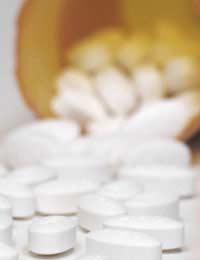
performance-enhancing drug/product/supplement etc
a drug or product that is used illegally by people competing in sports events to improve their performance
anabolic steroid:
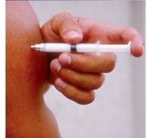
a drug that makes muscles grow quickly, sometimes used illegally by people in sport
testosterone:

the hormone (=chemical produced by the body) in males that gives them their male qualities
sprinter:

someone who runs in fast races over short distances
side effect:
1
an effect that a drug has on your body in addition to curing pain or illness
harmful/serious/adverse etc side effect
a natural remedy with no harmful side effects
side effect of
the side effects of the medication
2
an unexpected or unplanned result of a situation or event
These policy changes could have beneficial side effects for the whole economy.
mood:

▶WAY YOU FEEL◀
[countable] the way you feel at a particular time
You’re in a good mood this morning!
The manager was in a foul mood and was shouting at everyone.
The players are all in a confident mood .
What kind of mood is she in today?
The good weather put him in an excellent mood for breakfast.
It usually takes me a couple of days to get into the holiday mood .
The mood of the crowd was unpredictable.
the growing mood of confidence in East-West relations the general mood of depression in the office
Why had her mood changed so dramatically?
a mental disorder characterized by severe mood swings
The weather did little to lighten their mood .
The movie accurately reflects the mood of the time .
irritable:

getting annoyed quickly or easily
Jo was tired, irritable, and depressed.
an irritable old man
ᅳirritably adverb
ᅳirritability noun [uncountable]
acne:
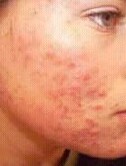
a medical problem which causes a lot of red spots on your face and neck and mainly affects young people
testicle:
one of the two round organs that produce sperm in a male, that are enclosed in a bag of skin behind and below the penis
menstruate:
to have a PERIOD
when a woman menstruates, usually every month, blood flows from her body
*most women menstruate once a month
ᅳmenstruation
menstruation used to make my sister quite ill for a few days
endurance:
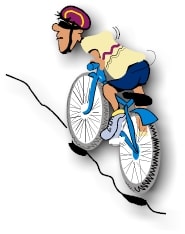
the ability to continue doing something difficult or painful over a long period of time
physical/mental endurance
She was pushed beyond her powers of endurance .
The marathon is a test of endurance .
the great physical endurance of mountain climbers
endurance running
scandal:
likelihood:

the degree to which something can reasonably be expected to happen
ᅳsynonym probability
likelihood of
Using a seatbelt will reduce the likelihood of serious injury in a car accident.
little/lower/high/greater etc likelihood
There was very little likelihood of her getting the job.
likelihood (that)
They must face the likelihood that the newspaper might go bankrupt.
clot [countable]
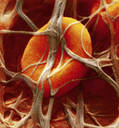
a thick almost solid mass formed when blood or milk dries
He developed a blood clot on his brain and died.
stroke:
▶ILLNESS◀
if someone has a stroke, an artery (=tube carrying blood) in their brain suddenly bursts or becomes blocked, so that they may die or be unable to use some muscles
She died following a massive stroke.
have/suffer a stroke
I looked after my father after he had a stroke.
a stroke patient
detect:
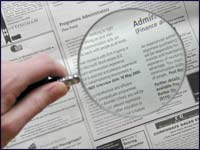
to notice or discover something, especially something that is not easy to see, hear etc
Many forms of cancer can be cured if detected early.
difficult/impossible/easy/possible etc to detect
detect a change/difference
Dan detected a change in her mood.
detect a note of sarcasm/irony/excitement etc
Do I detect a note of sarcasm in your voice?
ᅳdetectable adjective
فهرست درس های سطح 3
این متن در تاریخ 27 دی 1398 توسط مشاور سلام زبان ویرایش شد.